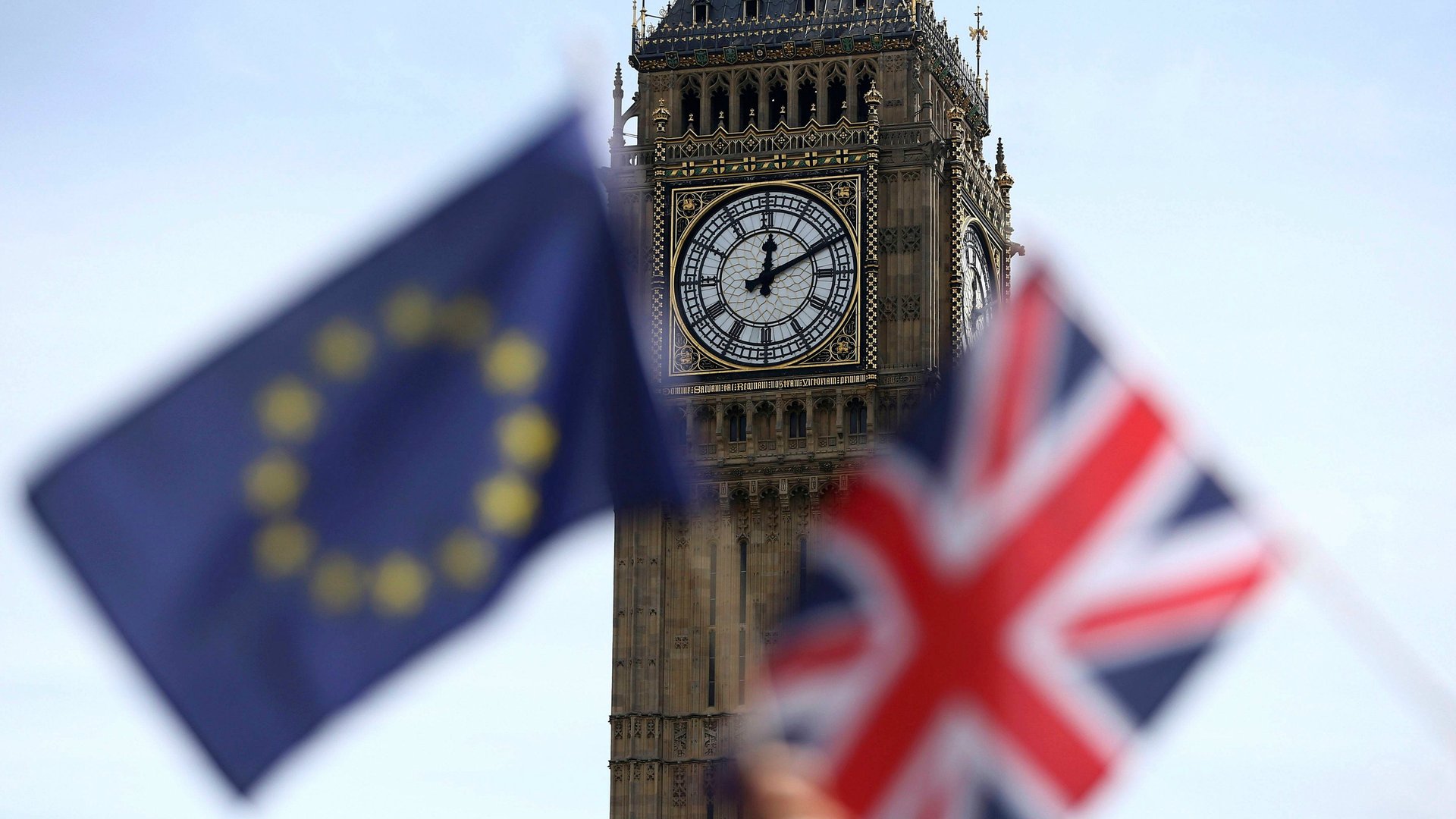We now know when the UK is set to leave the EU
Mark April Fool’s Day of 2019 in your diary. By this point, the UK will have left the EU.


Mark April Fool’s Day of 2019 in your diary. By this point, the UK will have left the EU.
Prime minister Theresa May announced today that the government will trigger Article 50 of the Lisbon Treaty, which starts the negotiation process for a country’s exit from the EU, by the end of March 2017. Once this is invoked, a country has up to two years to discuss and agree on the terms of its departure with the 27 other member states.
Where the UK now stands on free-movement rules and trading relationships will be one of the key sticking points. Various EU leaders and member states have already warned Britain against “cherry-picking” its terms of the deal, noting that the country can’t have full access to the single market without also allowing for full freedom of movement.
It’s May’s clearest commitment to a strategy yet. Up to today, exactly what she meant by her “Brexit means Brexit” mantra had been unclear. She had repeated to eager pro-Brexit politicians that she was not going to trigger Article 50 before the end of this year, but had not hinted at when the process would start, or what sort of deal she would favor. (She has, however, already rejected the idea of a points-based model for EU migrants, a promise that was central to the entire Brexit campaign that secured 52% of votes in June.)
Besides being music to the ears of the pro-Brexit camp, May’s announcement today should calm nervous businesses, which have called for more clarity around negotiations. Last week, Nissan’s chief executive warned he could scrap a potential new investment in the UK unless the government guaranteed compensation for any tariffs that would be caused by a “hard Brexit” (in which the UK leaves the single market and does not allow for free movement).
Also in May’s announcement today are plans for a “Great Repeal Bill.” This will not, in fact, repeal existing EU laws from the British statute book, but enshrine them into UK law, with effect from the day Britain leaves the bloc. (What the bill repeals is the 1972 European Communities Act, which made EU law binding in Britain.) Parliament will then be able to start discarding the bits of EU law it doesn’t want, though it’s far from clear what those will be.
This, in May’s words, ”marks the first stage in the UK becoming a sovereign and independent country once again.” That’s just a trifle exaggerated: while Britain’s parliament did lose some of its sovereignty by recognizing EU law as binding in 1972, the last time Britain was successfully invaded was back in 1688.